Education Reforms
The Globalisation of the world economy and higher education are driving profound changes in the overall education system. There is a continuing need to dynamically adapt to these changes, to ensure that we remain competitive and can respond effectively to the challenges of globalisation.
In recent years, there have been essential changes in our education deliverables in terms of
- Content
- (what to teach)
- Knowledge Delivery
- (how to teach)
- Student Learning
- (how to assess)
Examinations or Assessments of students play a very important role in deciding the quality of education. They must not only assess student’s achievements (and grades) but also measure whether the desired learning outcomes have been achieved.
The achievement of objectives and program outcomes are crucial and needs to be proven through accurate and reliable awardable assessments. It is widely acknowledged that “assessment drives learning’’, what and how students learn depends to a major extent on how they think they will be assessed.
Adaptation of Outcome Based Education Framework
The country that wants to be a signatory member of a multinational agreement for the mutual recognition of engineering degrees, i.e. the Washington Accord (WA) must implement Outcome Based Education Framework. India being a signatory to the Washington accord, Indian accreditation agency ‘National Board of Accreditation (NBA)’ has made it mandatory for engineering institutions to adapt an OBE framework for their
- Curriculum Design
- Curriculum Delivery
- Assessment
Though Indian Universities and Colleges have started adapting OBE framework for their engineering programs, the focus is limited to the curriculum design part i.e. connecting curriculum components to the program outcomes. Very little attention is being given for connecting examination questions / assessment tools to the program outcomes. The absence of proper mapping between program outcomes and assessment tools lead to inaccurate and unreliable measurement of attainment of outcomes by the students. This missing connect creates a big gap in the effective adaptation of OBE framework, making the whole exercise futile.
(Excerpts from Education Reforms by AICTE & MHRD)
How does our solution help?
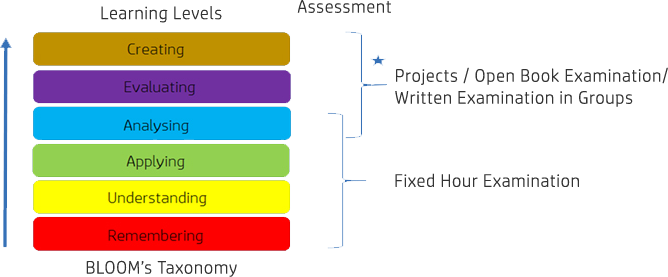
Our solution empower educational institutions to strategize the assessment methodology based on competencies attained through recorded student’s performance indicators. Institutions need to upgrade the assessment on BLOOM’s taxonomy levels ensuring the quality of output matches with our industry requirements.
Examination Challenges
- Leakage of paper during question paper setting
- Security threat at printers
- Improper packaging
- Delayed / Errorneous delivery of question paper
- Distribution of question papers
- Malpractice in examination
- Impersonation / Tampering with hall ticket
- Tampering with answer sheets
- Distribution of answer sheets
- Collection & storage of answer scripts
- Scanning & retrieval of answer scripts
- Disposal of answer scripts
- Paper chasing
- Quality of question paper (Bloom's taxonomy level)
- Question paper creation from superseded curriculum
- Fluctuating & increasing cost of paper
- Exam administration at multiple centers
- Unproductive cycle time
- Cancellation of exams
- Delay in assessments
- Double marks entry
- Re-Evaluation
- Grades calculation
- Delayed result declaration
- Wastage of answer sheets
- Making answer scripts available to students (RTI act)
- High end scanners purchase & maintenance
- Bar coding of answer scripts
- Calling evaluators on campus for table checking
- Human error - internal marks & practical exams results
- No data analysis on student learning curve
- University reputation at risk
- Multiple visits by students to university / college
- Lack of dedicated exam cells
- Lack of secured facilities
- Non-availability of appropriate ICT infrastructure
Our Solution
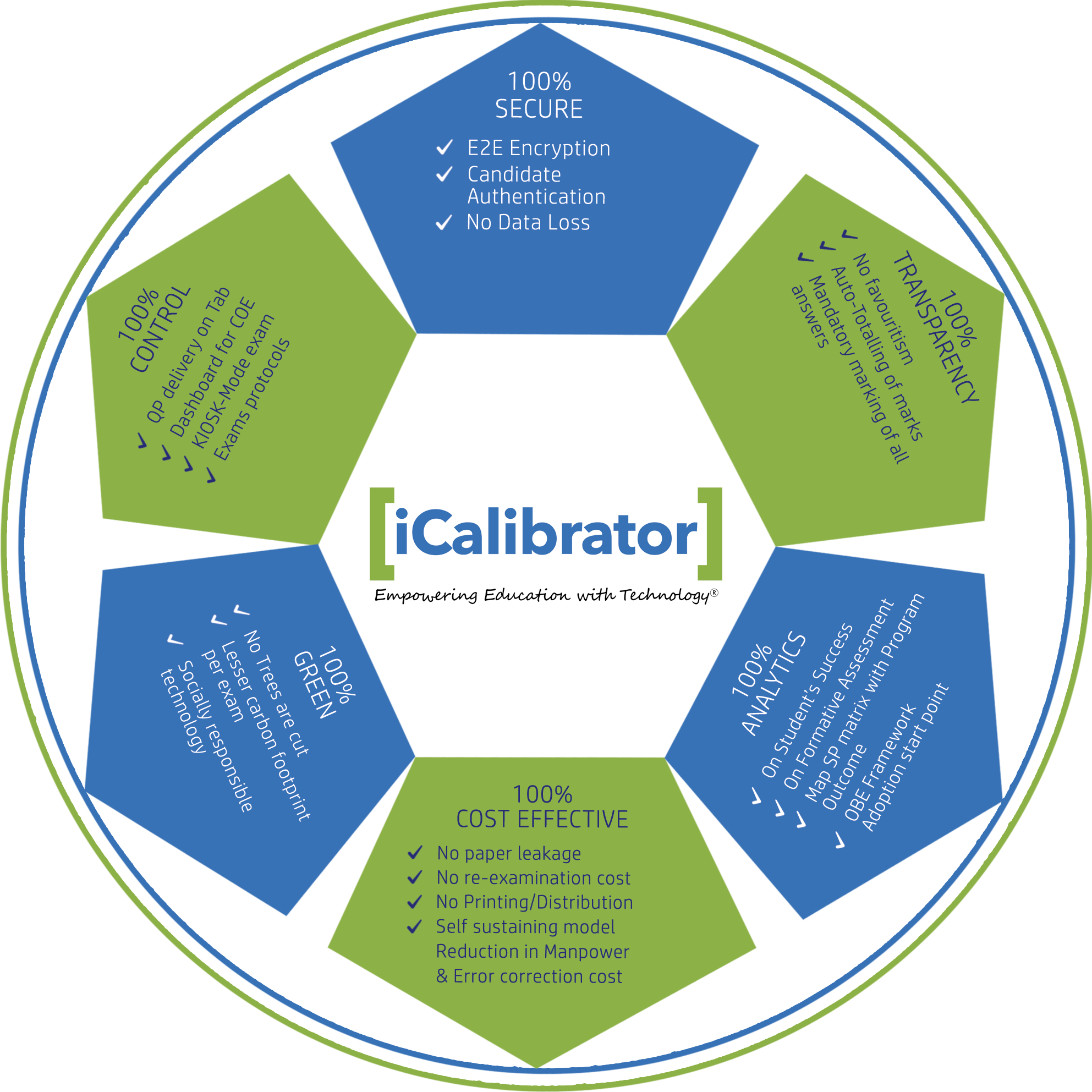
Paperless Assessment & Analytics (PAA) is a turnkey solution for conducting simultaneous paperless examination across multiple geographically dispersed locations in a secure environment. With this solution,we endeavour to address the core problem of conducting assessment examinations for academic and industry recruitment by making the whole processes of examination management go paperless i.e. making it completely digital.
The system manages and distributes question papers to the examination centres / students’ tablet electronically over a secure communication channel. The integrity of question papers is managed by using strong encryption algorithms.
- Enable students to take their OBJECTIVE & SUBJECTIVE examinations on tablets.
- 100% TRUE paperless, giving virtually digital paper experience with stylus pen.
- Environment Friendly Solution

Solution Advantages
- Question bank creation
Just in time question paper creation and delivery at the touch of a button. - 100% eco-friendly
Saves millions of trees - 100% transparency
No favouritism from examiners - Digital footprints of students & invigilators are tracked & audit trails are maintained for MIS.
- One single HDD can accommodate university’s exam data of multiple years.
- Solution has all security & data loss protection parameters to maintain the sanctity of exams.
- Data analytics on student's performance matrix
to be linked with program objective. - Our solution handles a wider gamut of processes to be pitched as “Complete Paperless Education”
Cost to Revenue – Guaranteed Reduction

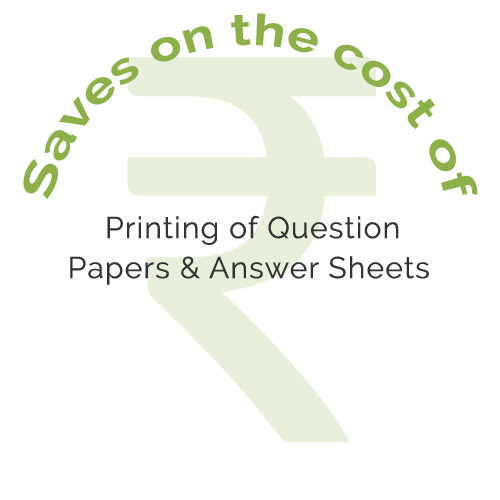
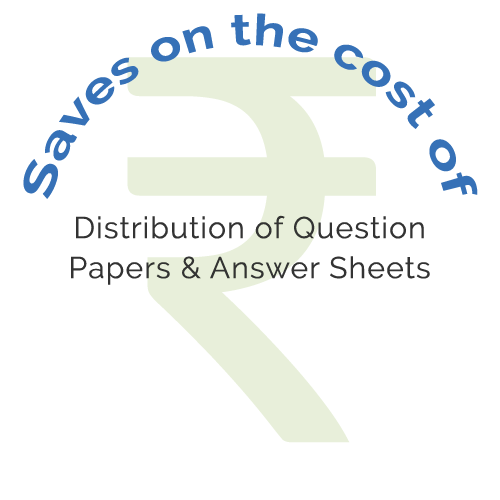

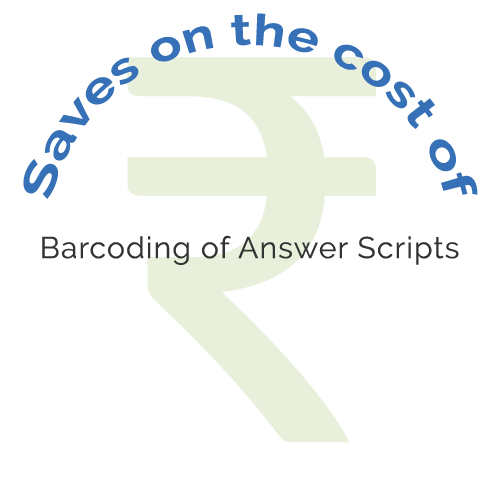


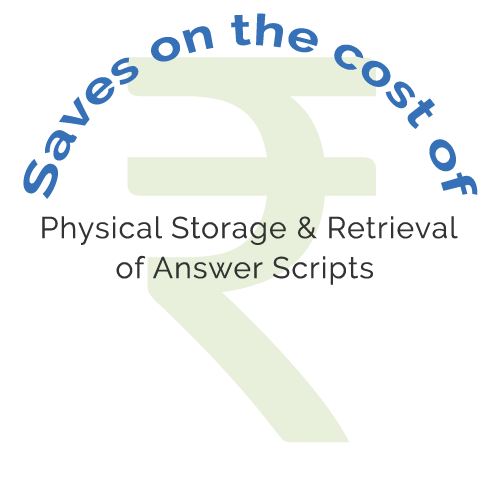
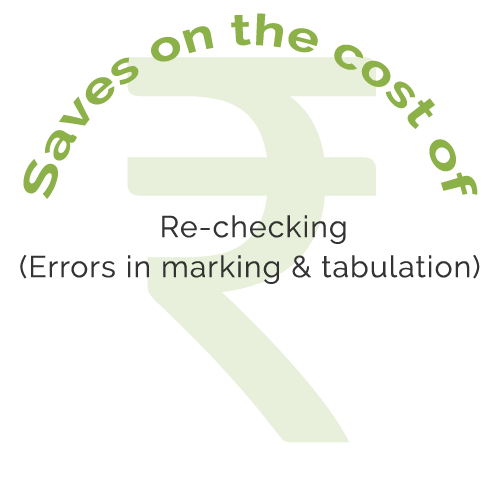
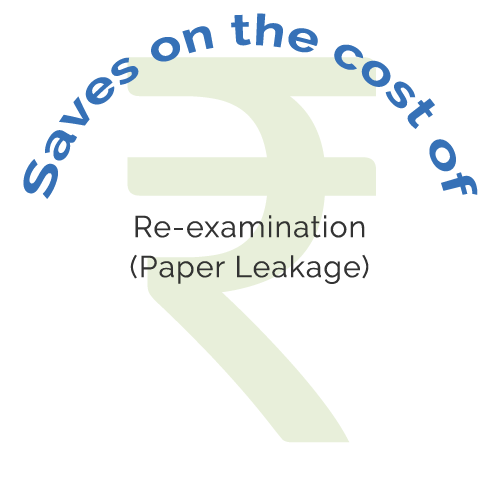
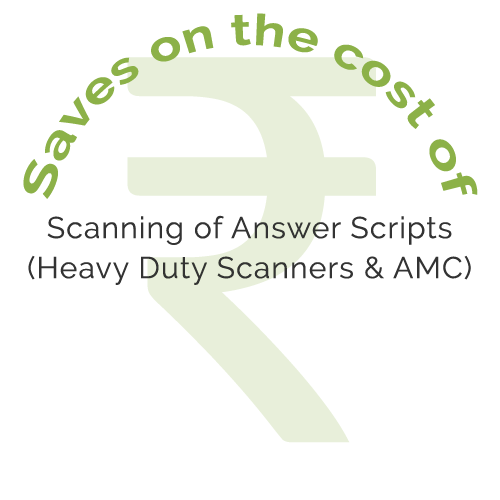
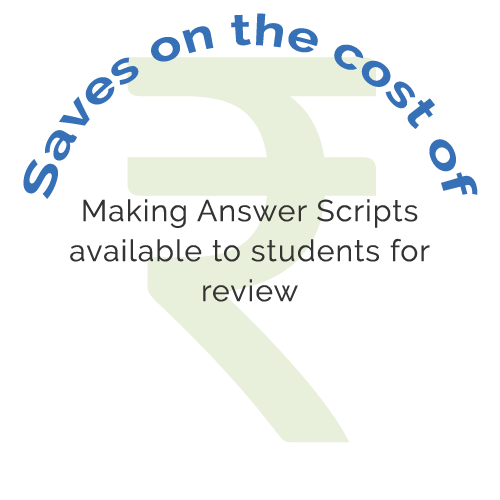
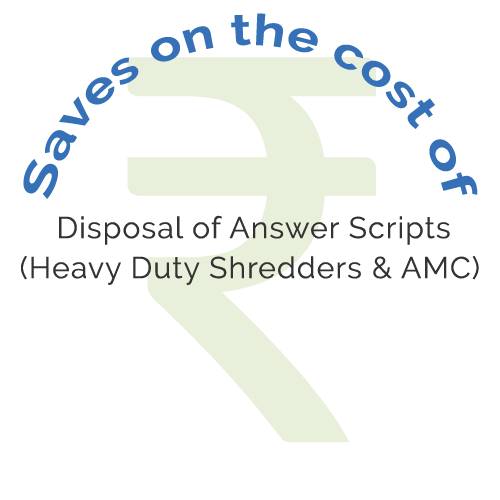
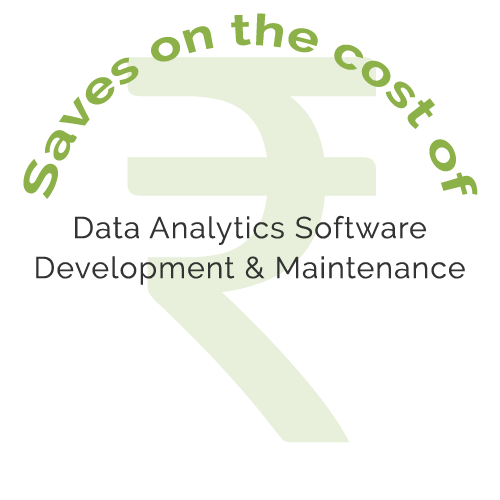
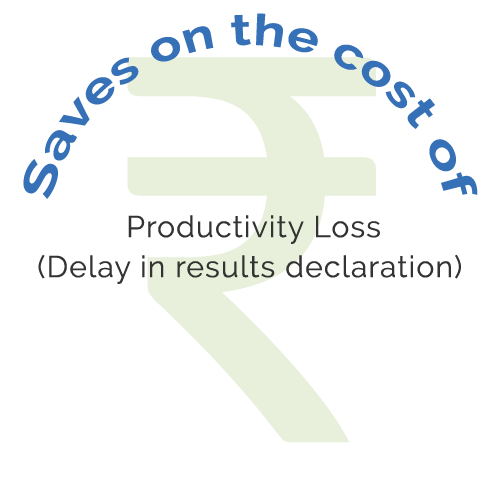
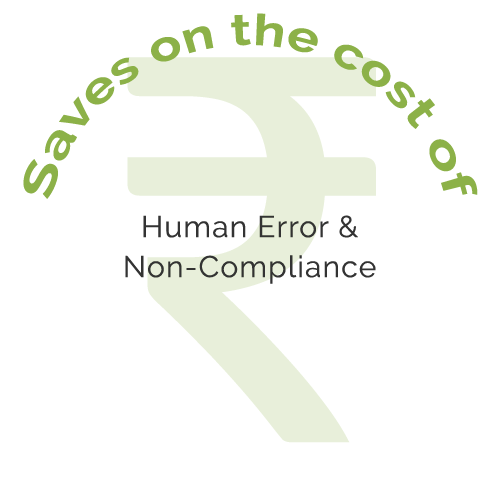
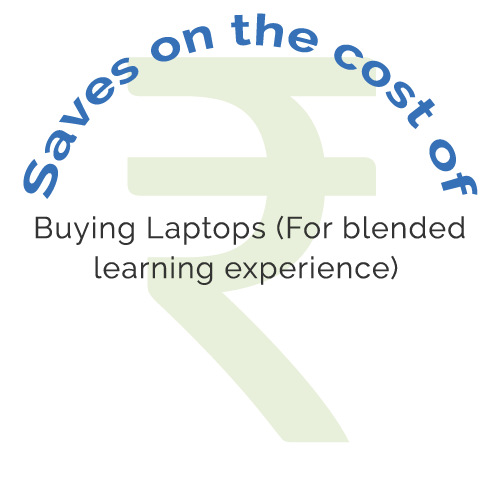
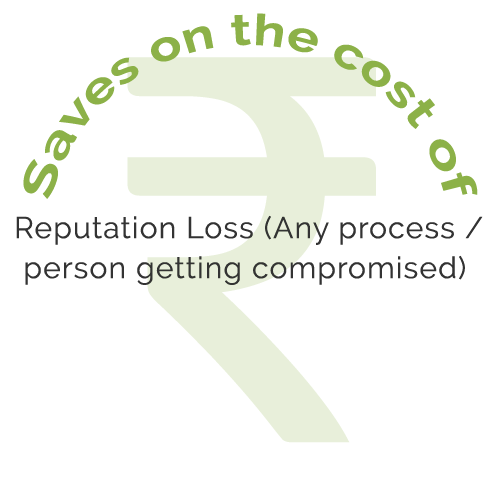
Solution Modules
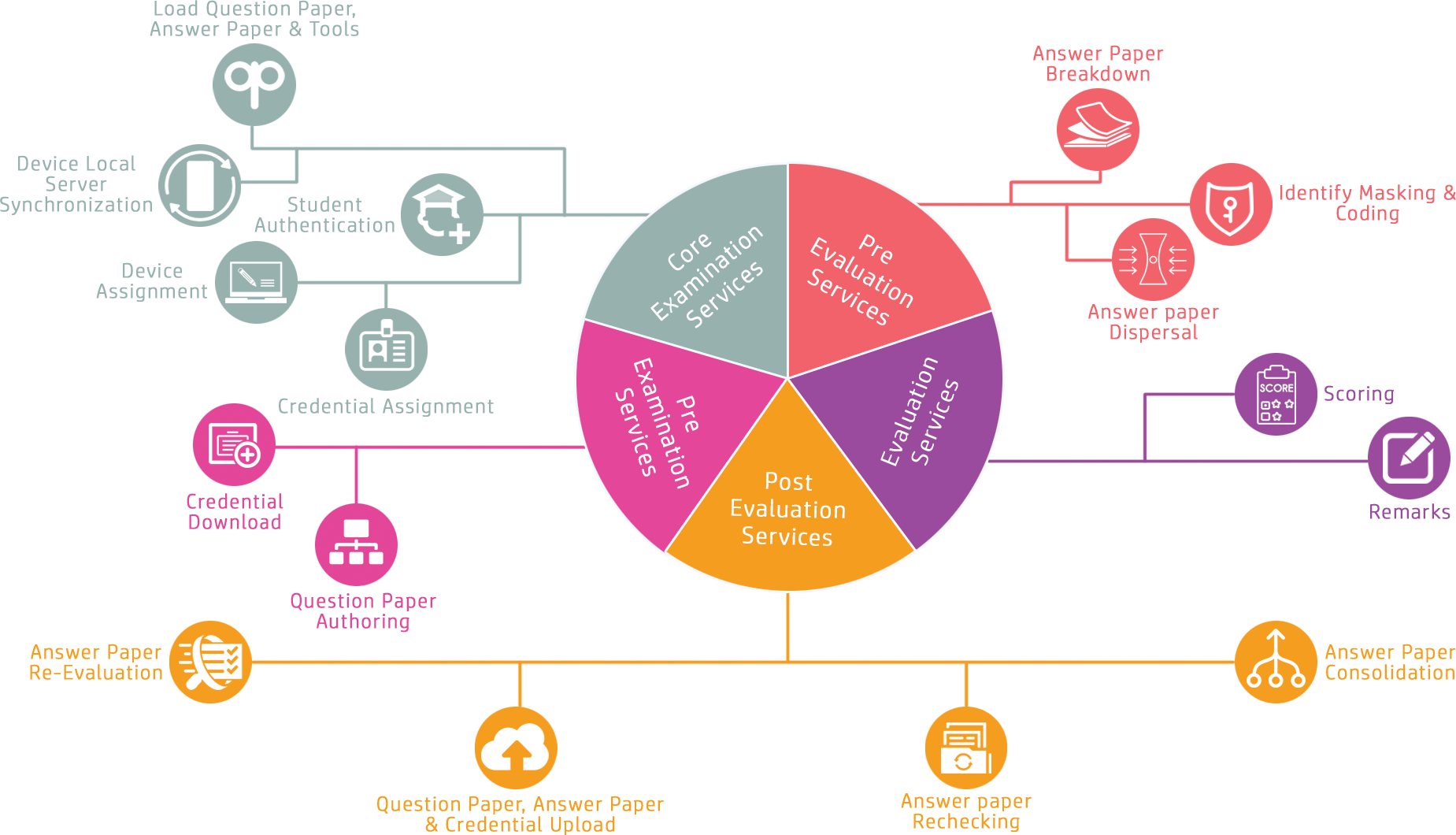
Solution Workflow

Solution Deployment
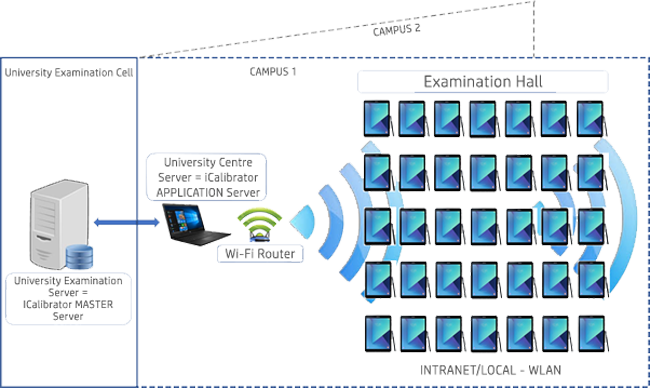
On Premise
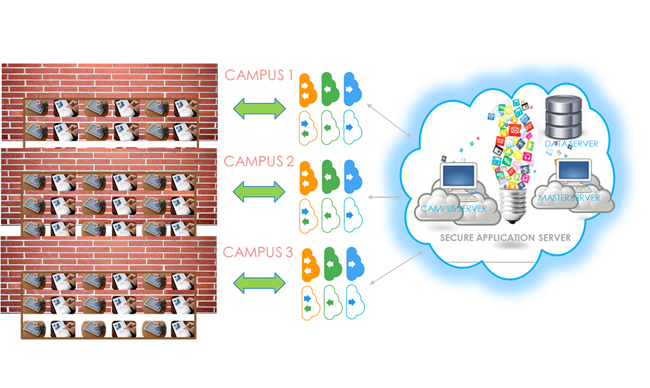
On Cloud
Technology Transformation
Education systems have evolved over the centuries in response to social, economic and technological innovations, which in turn are impacted by the evolution in education system itself. Changing social paradigms and environment have transformed students’ motivation and career expectations, emphasising the need for comprehensive education ecosystems
Education institutions and regulatory framework should embrace upcoming technologies and processes at a much faster pace than it did more than three decades ago when computer education came to India.
The universities need to break away from the process driven, technology supported mass teaching systems to a new way of education that appreciates the personalization of learning.
Recent technological innovations are transforming the Higher Education landscape and filling gaps that exist in present education systems ....
Challenges faced by Universities
- Cohort Learning
- Fixed Education Structure
- Single pace of learning
- F2F knowledge dissemination
- Limited Counselling System
- Knowledge based in physical libraries, making it the exclusive domain of the university
Need for
Higher Education Solutions
Emphasis on personalized and adaptive learning and cognitive flexibility to tailor education needs
Focus on differentiated instruction to help teachers assess students interests and strengths
Self-learning encouraging critical thinking and proactive approach of learning for students
Technological invasion Improvising Higher Education
Use of LMS and ERP solutions allowing customized user interface for every user
Online assessment and data analytics are enabling teachers in understanding student performances
Omni-present knowledge through internet enabling increasing demand for distance learning courses
# Data E&Y Report
The Technology is in the driving seat to transform the learning process by utilizing analytics to develop adaptive learning paths.
The traditional means of assessment at the end of a program are passé. Real time adaptive assessment methods are providing students a learning path specific to their needs – unlike the traditional post facto assessment methods where the scores at the end of the program tested the reception of knowledge.
The advent of online analytics is allowing course developers and teachers to identify the best learning path based on the real time assessment of the learner behaviour. Such analytics allows them to design programs that further strengthen the individual learning paths of students with different levels of academic intellect and learning motivations.
Future technology from our portfolio shall be Research Simulation Labs on Tabs (RSLT) to provide a connected personalized learning experience to students and would use AI to coach students into careers that suits their aptitude best.